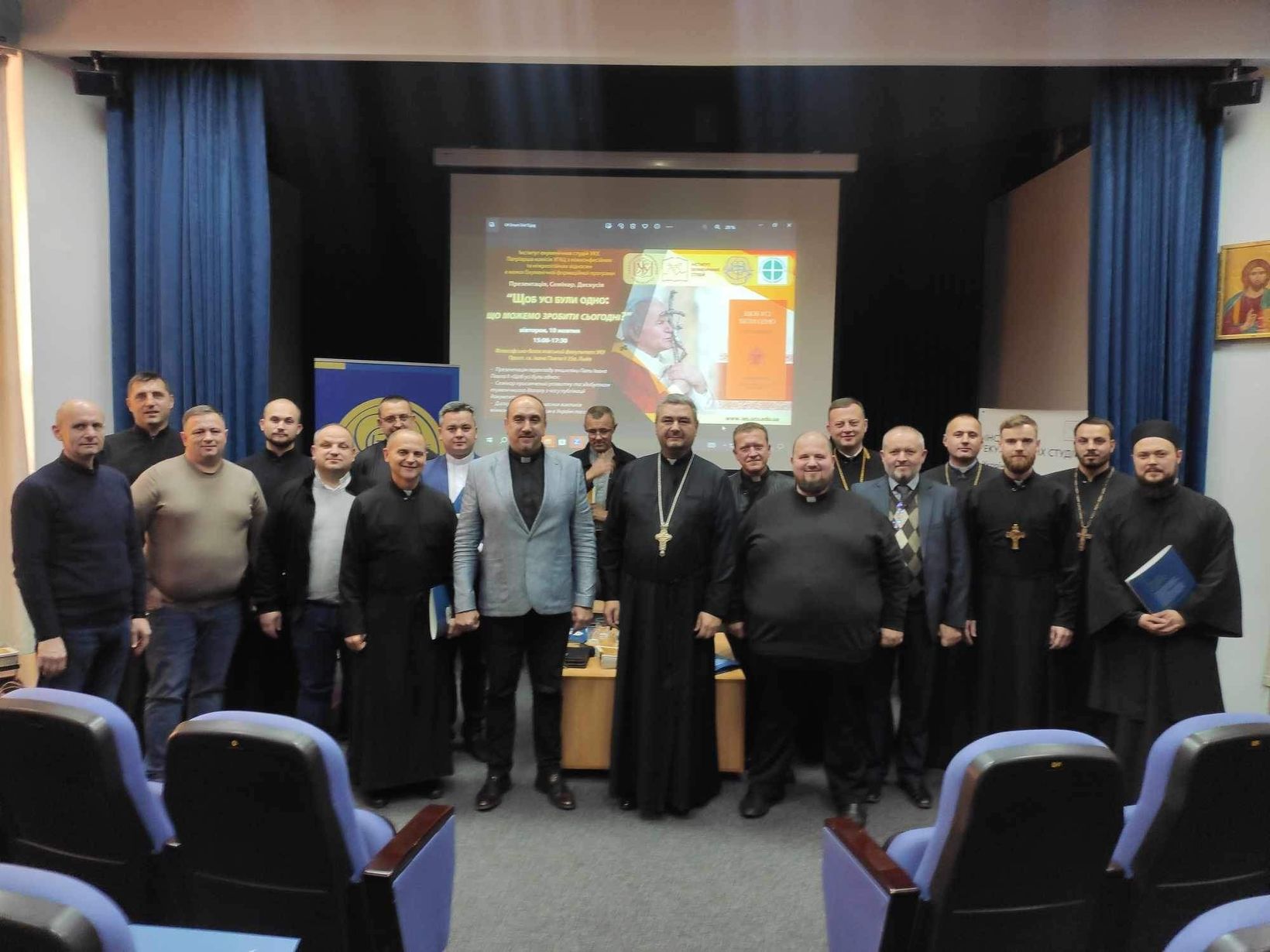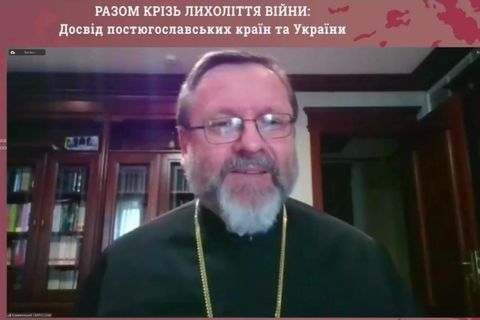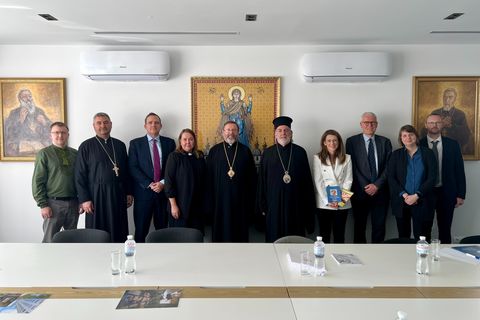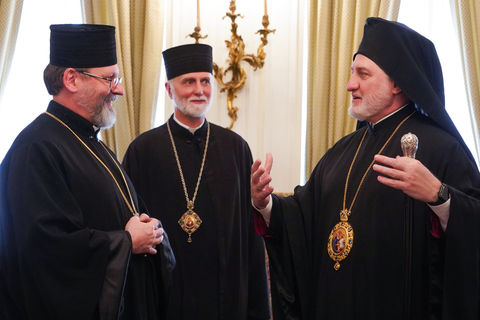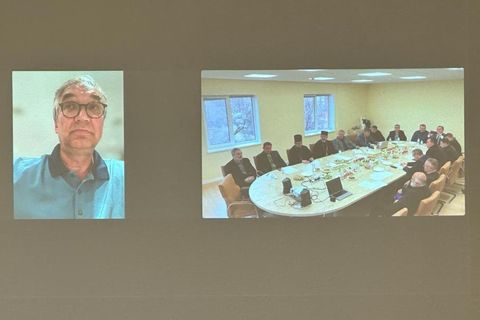UGCC Commission on Interfaith and Interreligious Relations Convenes in Lviv
On Tuesday, October 10, the heads of the diocesan Commissions on Interfaith and Interreligious Relations arrived in Lviv, where their two-day meeting began. The conference is set to include collaborative discussions and debates concerning the relations of the UGCC with other denominations and religions in Ukraine.
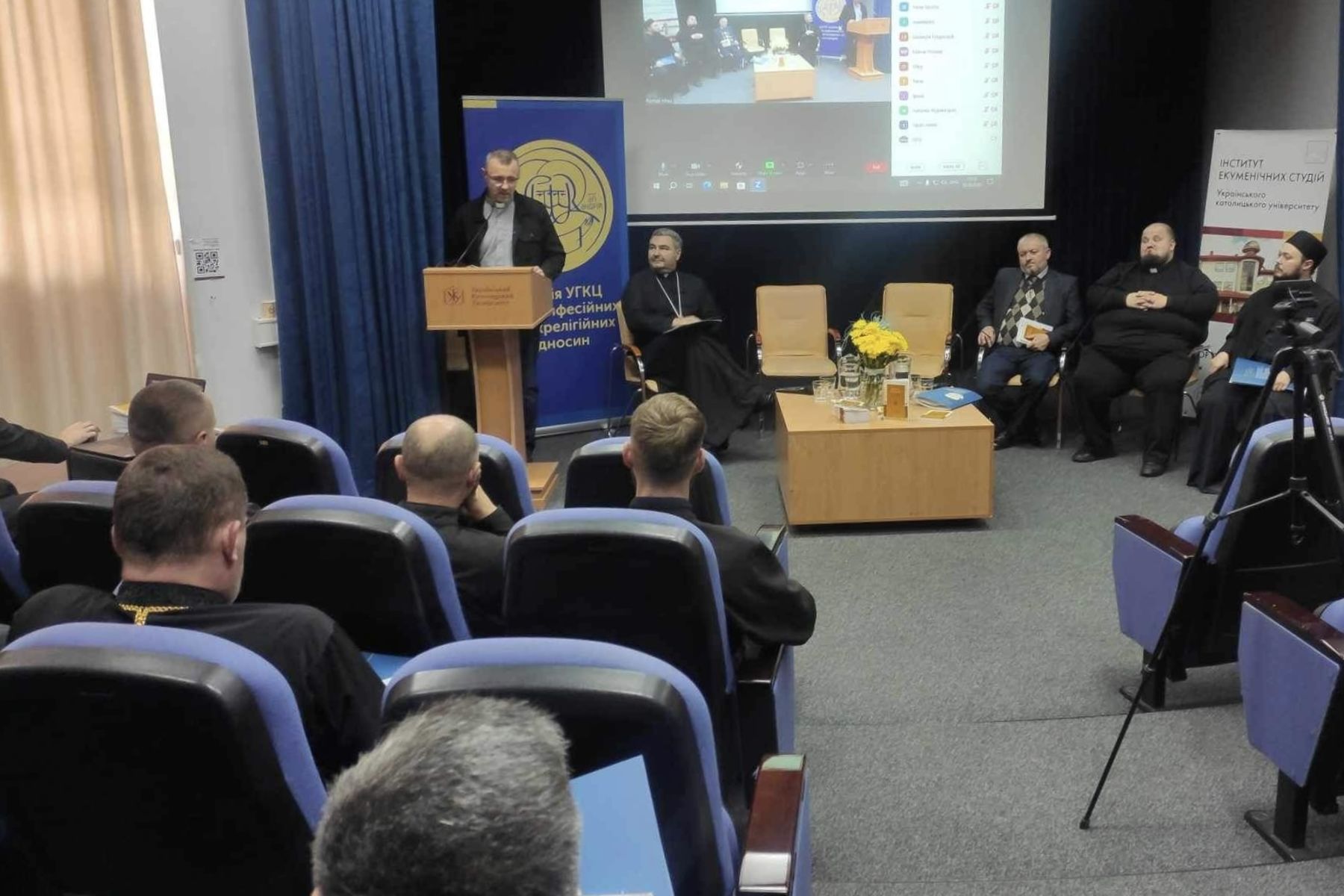
The day began with a conference titled “That All May Be One: What Can We Do Today?” The Ukrainian translation of Pope John Paul II’s encyclical “Ut unum sint” was presented at the conference. This already textbook ecumenical document has become an essential text of the Holy See, which clearly demonstrated that efforts to achieve Christian unity are one of the priorities in the life and work of the Catholic Church.
The document summarized the path the Church has trodden since the Second Vatican Council, recounting the main ecumenical initiatives in which the Catholic Church has participated at the official level. The encyclical also addressed the complicated issues that divide the Christian Churches and on which the Bishop of Rome called for joint work so that they no longer become an obstacle to unity. Almost 30 years have passed since the encyclical was issued. So today, we can summarize what has already been achieved and what still needs to be done to achieve the goal of Jesus Christ — “that all may be one.”
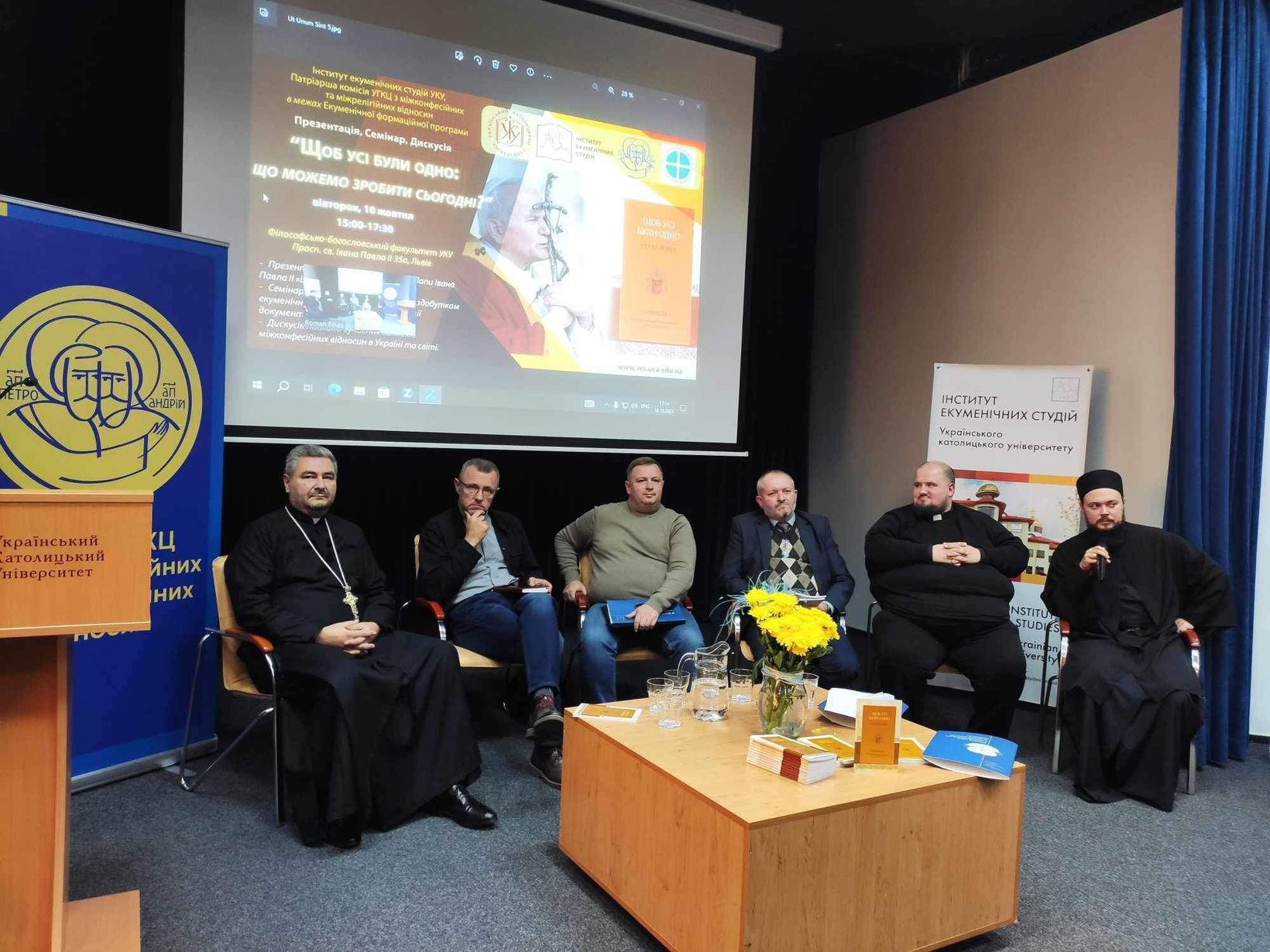
In a commentary to the UGCC Information Department, Fr. Ihor Shaban, head of the UGCC Commission on Interfaith and Interreligious Relations, noted that the discussion specifically underlined that the war in Ukraine caused by Russian aggression brings initiatives for Christian unity to a new level.
“This also makes us think,” the priest is convinced, “about whether it is possible to return to the previous normal state of interchurch relations after the war and, consequently, makes us look for new forms of creating ecumenical relations. At the same time, we need to be careful to protect ecumenical dialogue from instrumentalization, especially given the growing injustice in the world, and not forget that the mission of the Church today is to serve society in healing the traumas of war, fostering unity and resilience of people.”
